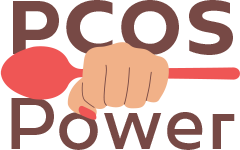I sat down with Whitney Way Thore of My Big Fat Fabulous Life. I am honored she trusted in me to guide her toward health. Plus, we got to share the visit with you during episode 2.

I found Whitney to be a kind, genuine, charismatic woman who got me in stitches with her goofiness. Do you know why Whitney is so captivating to watch on TV? She is like all of us: afraid for her health, feeling the pressure, and not wanting to lose herself.
I gave Whitney pointers and here are ways you can incorporate them into your life.
Are you afraid for your health?
Whitney tearfully described her fears of diet prison. She was terrified of the all too familiar head space where she’s afraid of anything she eats, a slave to the gym and chained to the scale. Whitney is not the only one who has tried to change her eating habits quickly because of health fears. Many move toward fear as a motivator. I find this type of motivator hurts us in the end. Fear tends to promote impulsive decisions, fad diets, and quick results over health. If you have walked in Whitney’s shoes and experienced that same terrifying head space, read on.
Weight loss is not a behavior
When My Big Fat Fabulous Life premiered, the cast got together to celebrate. I met a fabulous young woman named Samantha. She described doctors refusing to treat her medical conditions until she lost weight. That would be fine and dandy if weight loss was really calories in calories out and a proven method to work. BUT it is not. Surprised? Read more here, here, and here.
I told Whitney “weight loss is not a behavior” because we cannot control what the scale does in reaction to eating, exercise, and self care habits. Behaviors = the food we choose and the way we move our body. How our body reacts is up to an immeasurable amount of variables. Even more, if you experience PCOS multiply this by 100. High testosterone and insulin levels left untreated will make the scale not move or go up.
When Samantha told me doctors refuse to treat her medical conditions UNTIL she loses weight I wanted to scream. Doctors, I appreciate you have good intentions, yet you are keeping this young woman from finding health. And, this practice is discriminatory.
Say NO to the Food Police
Black and white thinking, in the psychology world, is referred to as a cognitive distortion. It is distorted and pathological because not much lives on opposite sides. Rather, our world has continuums and shades of grey.
Sadly, society losses sight of this concept with food. We categorize it as right or wrong.
Good or bad.
All or nothing.
Black or white.
This is a trap my friends.
When we set up food as ____is good and ____ is bad we are setting ourselves up to fail.
Here’s why:
- Nutrition science is a fluid science. This means it is always changing and never exact. Most nutrition research is based on correlational methods. This can only suggest a relationship NOT cause and effect. Next time you read “Eating sugar causes diabetes” or “Eating fat causes a heart attack” note the error. And send the author a Research Methods 101 textbook. I will pitch in.
- Good versus bad food ideas relate to morality. I teach my children and my clients the only bad foods are the ones we steal. If you pay for it, it is good. I think it is easy to call a food good or bad yet it is inaccurate. Stop using lazy terms and go for accuracy.
- Relating food to morality harms our ways of relating to food. This is especially true for children. Those genetically predisposed to eating disorders learn this cognitive distortion and can find an eating disorder waiting eagerly around the corner.
- Using all or nothing thinking about food sets up a perfectionism that does not exist in nature nor is necessary. Eating one Twinkie or Donut will not cause diabetes or kill us.
Eating less is not better!
Eat less often or fewer calories has been twisted to equal healthy for everyone. As I mention in My Big Fat Fabulous Life, eating too little is harmful. Keep in mind:
- Every binge starts with not eating enough earlier.←Tweet this Don’t blame the “tempting” food or a lack of willpower. Binge eating starts with a diet and overly restrictive eating habits.
- Eating infrequently stresses out our body. I explain to Whitney that it makes our body go into a starvation mode. This means it taps into primal brain communication demanding us to eat and EAT NOW! This will feel out of control or binge like. It isn’t in reality. It is just being human. More here.
- Eating infrequently sets up the body to want to binge which then pummels our body with glucose then insulin. These spikes are exhausting to our physiology. Insulin and blood sugar spikes hurt body systems like blood vessels. And, the more insulin spikes, the more weight goes up since insulin is a growth hormone. So if you aren’t interested in gaining more weight, stop dieting. Restriction/dieting predicts weight gain. ←Tweet this Skeptical? That’s ok. Learn more here.
Your body has the answers
Burn your diet books. Walk away from boot camps. Stop looking outside of you for the food and exercise answers. Each of us has our voice inside letting us know how to eat for health and pleasure. Don’t hear it? Doesn’t matter because whether you are looking or not your body is still communicating. Before you eat your next meal or snack pull up a chair. Listen. Open yourself to the options.
Warning: saying no to diets may feel wrong. It may even feel neglectful. Many people tell me it feels like letting yourself go. It’s not letting yourself go. It’s letting yourself Be.←Tweet this




